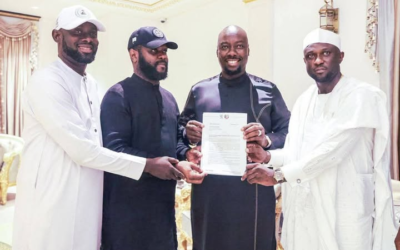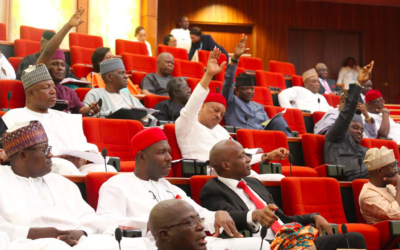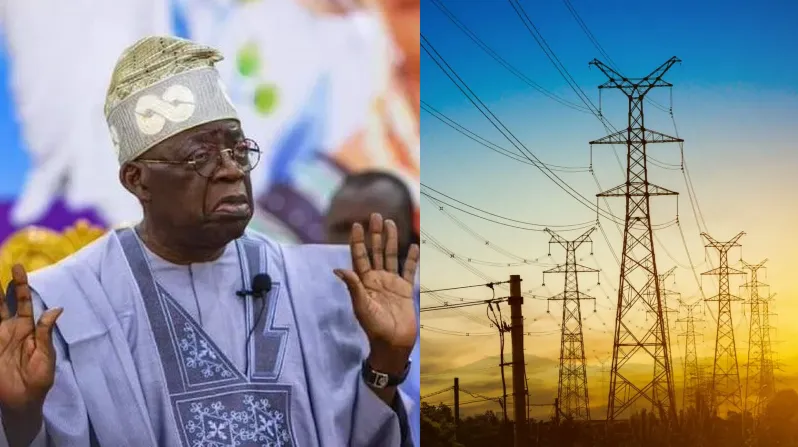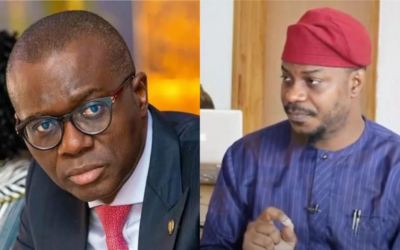
Emergency Rule: Who Won And Lost Rivers Game Of Thrones?
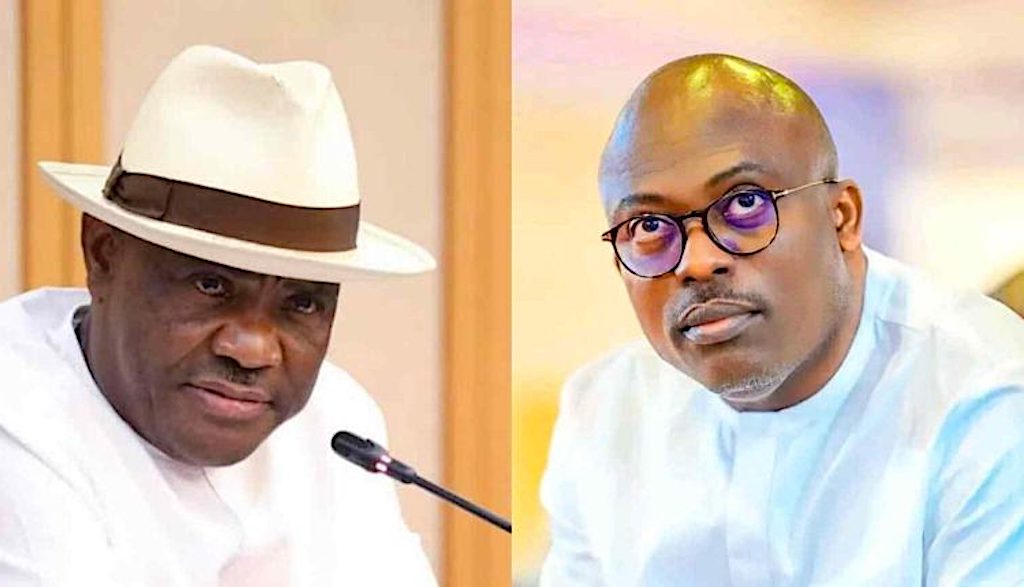
Today marks the end of the emergency rule in Rivers State, following the end of the six-month emergency rule imposed on the state by Bola Tinubu.
Tinubu, on Wednesday, announced an end to the emergency rule he declared in Rivers State on March 18, 2025.
In a statement on the cessation of the emergency rule, made available by the Presidency, the President said, “The Governor, His Excellency Siminalayi Fubara, the deputy governor, Her Excellency Ngozi Odu, and members of the Rivers State House of Assembly and the speaker, Martins Amaewhule, will resume work in their offices from September 18, 2025…
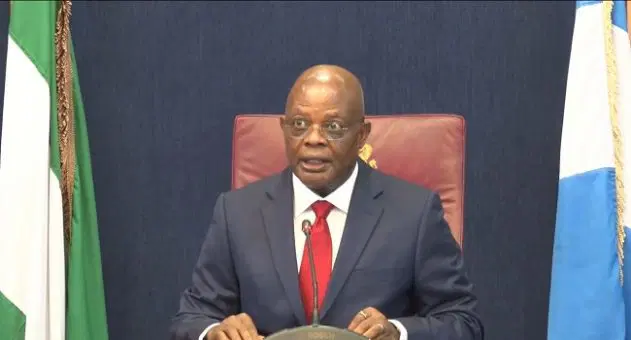
“It, therefore, gives me great pleasure to declare that the emergency in Rivers State of Nigeria shall end with effect from midnight today.”
He added, “I am happy today that, from the intelligence available to me, there is a groundswell of a new spirit of understanding, a robust readiness, and potent enthusiasm on the part of all the stakeholders in Rivers State for an immediate return to democratic governance.
“This is undoubtedly a welcome development for me and a remarkable achievement for us. I, therefore, do not see why the state of emergency should exist a day longer than the six months I had pronounced at the beginning of it.”
To restore democracy, which he suspended by appointing Vice Admiral Ibok-Ete Ibas as Sole Administrator, the President asked all elected officials to resume their offices effective from midnight of September 18.
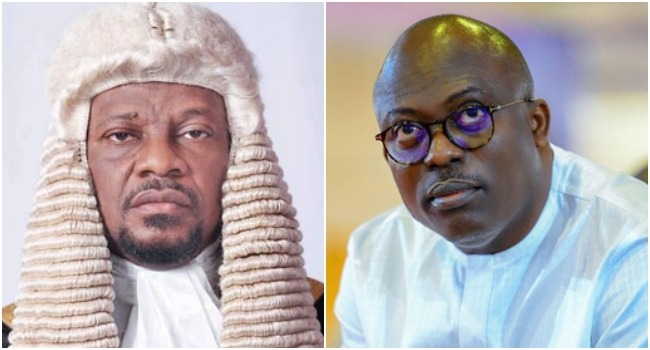
The political crisis in Rivers State has been one of Nigeria’s fiercest power struggles in recent years, rooted in a battle between Fubara and his predecessor-turned-political godfather, Nyesom Wike, now Minister of the Federal Capital Territory.
When Fubara emerged as governor in May 2023, he was widely seen as Wike’s protégé. The relationship, however, turned sour over control of political structures, state resources, and loyalty ahead of the 2027 elections.
By late 2023, the crisis escalated as the state House of Assembly split, with the majority siding with Wike, while a minority remained loyal to Fubara.
Moves to impeach the governor triggered street protests, legal battles, and even violence as the Assembly building was set ablaze during the height of tensions, symbolising the depth of the political breakdown.
Tinubu brokered a peace deal in December 2023, compelling Fubara to recognise the Amaewhule-led lawmakers who had declared their defection to the All Progressives Congress. The Abuja controversial agreement was criticised by many gladiators, describing it as unconstitutional.
Despite the truce, parallel legislative sessions, disputed budgets, and allegations of intimidation persisted. Both camps entrenched themselves further, drawing in national political forces and destabilising governance in the oil-rich state.
The height of the tensions was the February 28, 2025, judgment of the Supreme Court, which recognised the Amaewhule-led Assembly as the authentic in the state.
Hitherto, Fubara had recognised and given validity to the Victor Oko-Jumbo-led assembly.
The apex court also ordered the embattled governor to re-present the 2024 budget, while halting the release of funds by the Federal Government to the state.
It also declared the controversial local government election conducted by Fubara on October 5, 2024, as invalid and sacked the elected council chairmen.
The battle line was then drawn between Fubara and the Amaewhule-led Assembly, leading to heightened tension in the state.
The assembly, playing hide-and-seek, asked the governor to present the 2024 budget, even after the 2025 budget had been passed by the Oko-Jumbo three-man faction, though attempts by the governor to meet with the members failed.
As the tempers rose, locals and ex-agitators threatened to tamper with oil installations should Fubara be impeached, as threatened by the Amaewhule-led assembly in a notice sent to the governor.
A day before Tinubu imposed emergency rule, an explosion rocked a section of the Trans Niger Pipeline in the Bodo Community of Gonna Local Government Area in Rivers State. The following day, another explosion severed a pipeline manifold in the Omwawriwa axis of Ogba-Egbema-Ndoni Local Government Area of the State.
He expressed concern over vandalism by militants, allegedly acting in support of Fubara. The attacks occurred amid desperate efforts by the Tinubu administration to increase Nigeria’s lagging crude oil output and curb leaks.
To forestall a breakdown of law and order and protect vital oil installations essential to uninterrupted production and the economy, President Tinubu, on March 18, 2025, declared a state of emergency in Rivers State and suspended all democratic institutions.
The declaration was faulted by civil society groups, opposition political parties, Rivers indigenes, especially women, but the President justified his intervention, saying he was constitutionally empowered to intervene to prevent breakdown of law and order.
Winners
Tinubu emerges as the ultimate winner. Justifying his intervention in a statement on Wednesday, the President declared: “It would have been a colossal failure on my part as President not to have made that proclamation.”
For an administration striving to revive the economy from a comatose state, Tinubu was unwilling to risk anything that could cripple its mainstay—oil. His greatest concern was that critical national assets in Rivers, particularly oil pipelines, had come under repeated vandalism amid the heightened political tension
The emergency declaration not only quelled the unrest but also brought swift restoration of order. Within days, the vandalised pipelines were repaired and reactivated, averting what could have become a deeper economic crisis.
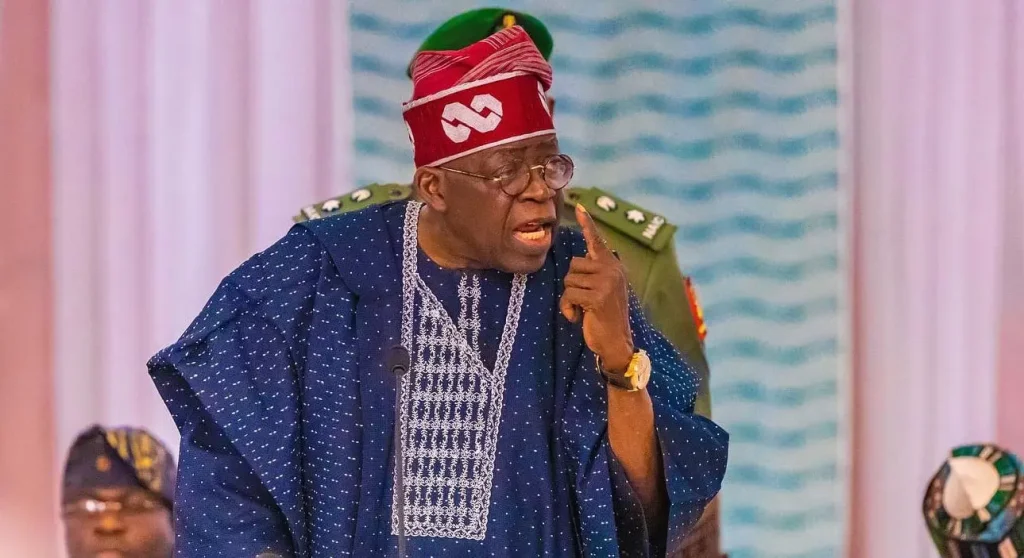
Beyond economic stability, the President also gained significant political ground in Rivers, a state previously dominated by the opposition. Before the emergency declaration, the Peoples Democratic Party held sway in the state. But as the crisis deepened, some loyalists of the governor defected to the All People’s Party ahead of the October 5, 2024, local government election, which they won.
The rescheduled poll, conducted by the state’s sole administrator on August 30, 2025, further cemented APC’s foothold, as its candidates emerged victorious in 20 out of 23 local government areas.
The outcome not only marked the APC’s long-sought grassroots penetration in Rivers but also positioned the party strongly ahead of the 2027 general elections.
Another clear winner is the FCT Minister, Nyesom Wike. Since December 2023, the minister had been locked in a fierce struggle to reclaim political control of Rivers. His loyalists had lost out in key positions—commissioners, local government chairmen, and other strategic offices—leaving him politically stranded.
The Supreme Court judgment that restored the Amaewhule-led Assembly gave Wike fresh leverage to tighten his grip on Governor Fubara. Determined to unseat him, Wike pressed hard until President Tinubu’s emergency rule intervened, halting the showdown. In one of his interviews, Wike even admitted that the President’s intervention had spared Fubara from the “sledgehammer.”
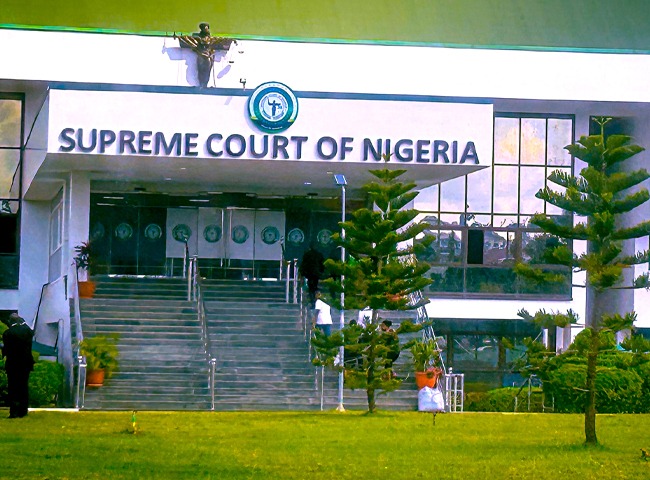
During the political lull that followed, the President reconciled the two rivals for a second time. Since then, Wike has bounced back to political relevance, successfully repositioning his loyalists in local government offices across the state.
In a statement by his Senior Special Assistant on Public Communications and Social Media, Lere Olayinka, on Wednesday, the FCT minister said the President’s intervention had further restored the confidence of the people of Rivers State in his leadership.
He commended the people of the state for their belief in the President and continuous support for him in his tireless efforts to return the country to the path of progress and development.
The minister, who cautioned troublemakers, especially fifth columnists who are always seeking to benefit from the crisis, to stay away from the state, added that, “From Rivers State going forward, the only news that will emanate will be that of peace, progress and development.”
Though he lost out politically and was suspended from office for six months, Fubara will also count himself among the winners of the emergency rule. Speaking with a group of supporters who had visited him, the governor had said the declaration of the emergency rule by President Tinubu saved his job and gave him the hope of returning to the Government House.
Armed by the Supreme Court judgment, the Amaewhule-led Assembly was determined to oust Fubara by all means until the declaration of the emergency rule on March 18 by President Tinubu.
Also on the winning side are the members of the Amaewhule-led faction of the Rivers Assembly. Though they were affected by the emergency rule, as the President suspended them from office, they regained their political relevance in their various constituencies and are now certain of electoral values in the 2027 election in the state.
The APC gained massively as well. The party, which was in opposition until the emergency rule, is now holding a major position in the political scheme in the state. Having won 20 out of the 23 local government areas in the August 30 election, the Tony Okocha-led state chapter of the party is now a beautiful bride.
The party is reportedly offering the governor the leadership of the party in the state, a move seen as part of wider political realignments following his reconciliation with Wike.
Elected local government chairmen on the APC platform can also count themselves among the winners of the emergency rule. The political situation created the opening for the opposition party to take control of key positions and sweep the polls—an advantage that strengthens its footing ahead of the 2027 elections.
Another clear winner is the Sole Administrator, Vice Admiral Ibok-Ete Ibas (retd). Pulled out of retirement after serving as Chief of Naval Staff under the late President Muhammadu Buhari, Ibas was entrusted with overseeing Rivers during its most turbulent period. His appointment not only restored stability but also gave him a high-profile platform to demonstrate administrative and crisis-management skills.
Losers
One of the losers of the development in Rivers is the former governor and now chieftain of the African Democratic Congress, Rotimi Amaechi.
The former transport minister during the administration of the late President Muhammadu Buhari had lost political relevance in the state since Wike took over in 2015. He had lost to Wike in the successive elections since then, as his political machine weakened considerably after leaving office. A loss for Wike in the crisis could have provided leverage for Amaechi to reassert his political dominance in the state.
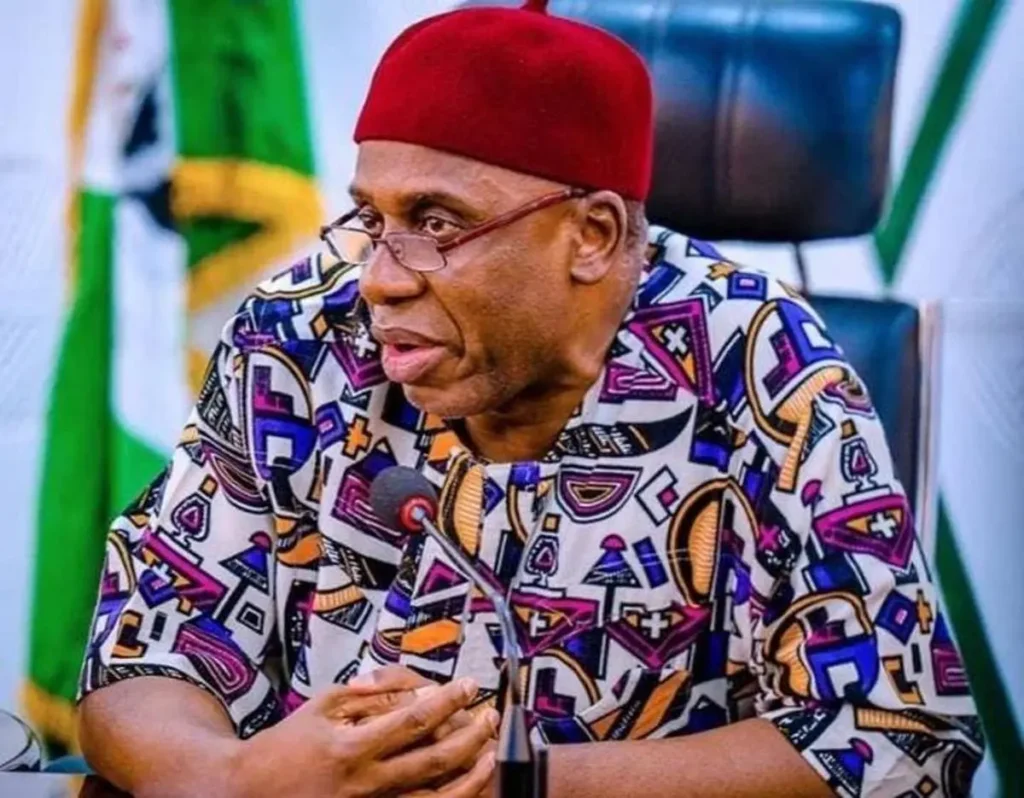
Amaechi was a vocal critic of the emergency rule. He publicly condemned the move, arguing that Tinubu’s actions were unconstitutional, a “brazen power grab,” and a threat to democracy.
For the emergency rule, many of Fubara’s loyalists lost their relevance in the scheme of things in the state. Though some of them may gain political appointments, that may not suffice for the opportunities they lost in the local government election. Some of them were reportedly angry that the governor had subjected himself to the authority of Wike, ruling them out of contention and political relevance.
READ ALSO: Fubara’s Return: Damage Already Done – CUPP
Another set of losers are some of the political leaders, stakeholders, and statesmen who had cheered Fubara on during the crisis. Among them are a former governor, Celestine Omehia; former national chairman of the PDP, Prince Uche Secondus, and Senator Lee Maeba.

Wike had serially accused both Omehia and Secondus of lacking political strength in the state, and they were visible throughout the crisis. Fubara’s return may, however, lock them out of relevance in the state.
Also on the losing end is the factional speaker, Oko-Jumbo, and his two members. With the authority firmly in control of the Amaewhule faction, Oko-Jumbo and his men would have to realign to retain their membership of the assembly.




